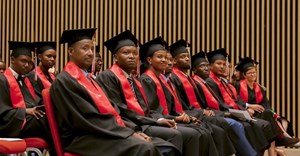#AfricaMonth
Trending





 Netflix reaches 40m users for ad supported planKarabo Ledwaba
Netflix reaches 40m users for ad supported planKarabo Ledwaba
Elections 2024
Jobs
- Equipment Stores Officer Port Elizabeth
- Lecturer - Creative Arts and Early Childhood Education Studies Durban
- Lecturer - Education Studies Pretoria
- Lecturer: Experience Design (Part Time) Durban
- Lecturer: Game Design (Part Time) Durban
- Lecturer: Digital Design (Part-Time) Durban
- Design Leadership Lecturer (Part -Time) Durban
- Interior Design Technology Lecturer (Part-Time) Durban
- Small Business Management Lecturer (Part Time) Durban
- Registrar Durban
SA continues to struggle with university dropout rates

Despite some awareness of this issue being created several years ago, very little progress has been made to stem the tide of South Africa’s high tertiary dropout rate and the long-term impact of poorly aligned subject choices.
This leaves many student “dropouts” – along with their families, financially – worse off than they were before leaving school.
Making appropriate and practical choices regarding a career, and knowing what to study to get there, is critically important for school-leavers – ideally beginning as early as Grade 9.
“With several studies on South Africa’s drop-out rate being completed in 2020, we have arguably – and unfortunately – made little progress in terms of actively addressing and overcoming this,” says Benedict Johnson, Fundi executive head: EBS and new initiatives.
“Our own research into this space currently supports the pervasively stubborn first-year dropout rate of 60%.”
Johnson notes that choosing the incorrect study path remains one of the key factors behind this statistic.
“Research published as recently as 2022 from North-West University (NWU), compared findings from 2004 – where one out of every three university students and one out of every two Technikon students were predicted to drop out of studying – against statistics from 2020.
Across the board, pressures on students causing them to drop out had increased significantly over time.”
Separate research published earlier in 2010 showed that one in eight students believed they had not made the right choice of study when they first chose their careers.
“Very simply, this was as a result of not having sufficient – or the right – information available when they made their choice. This was a critical contributor to their dropping out of university.”
With many government schools no longer employing the services of guidance teachers, most school leavers are ill-equipped to make “lifelong” decisions.
“As a result, they often turn to family members or peers or undertake limited research on their own. This means that these decisions are misaligned or misdirected; based on their individual biases or beliefs about what would be best or the ‘wisest’ for the learner and not based on their aptitude.
“Should the student take this advice, they can find themselves dropping out within a few short months, possibly with a seemingly impossible debt to their name,” notes Johnson.













